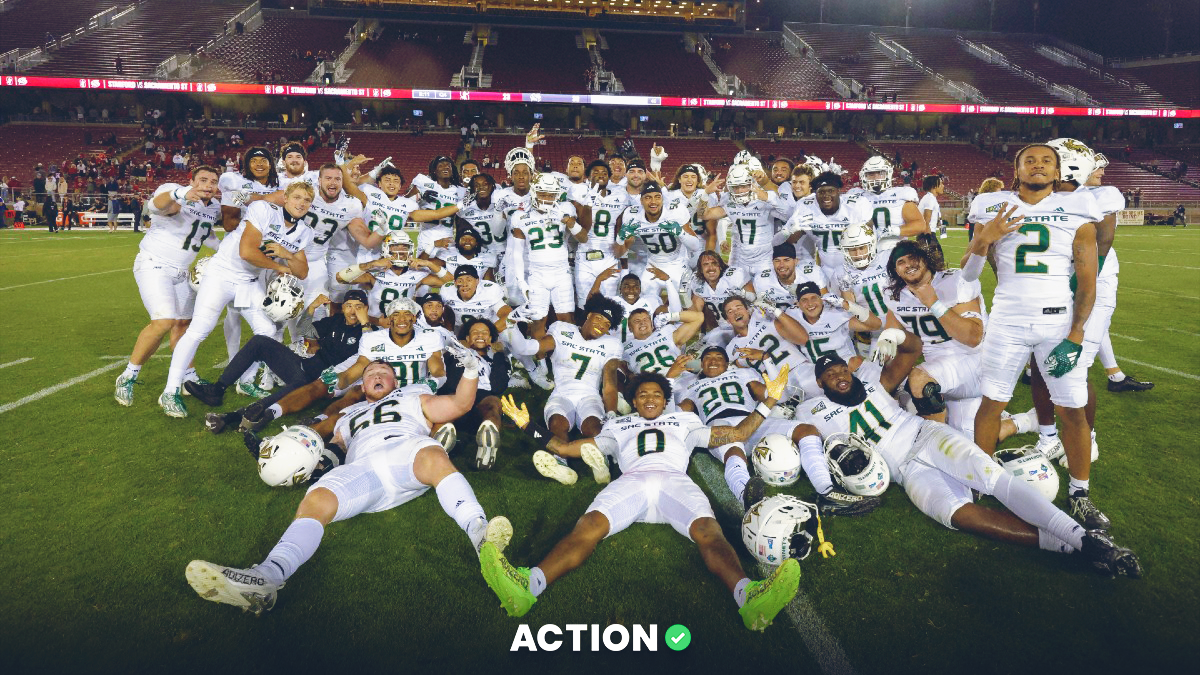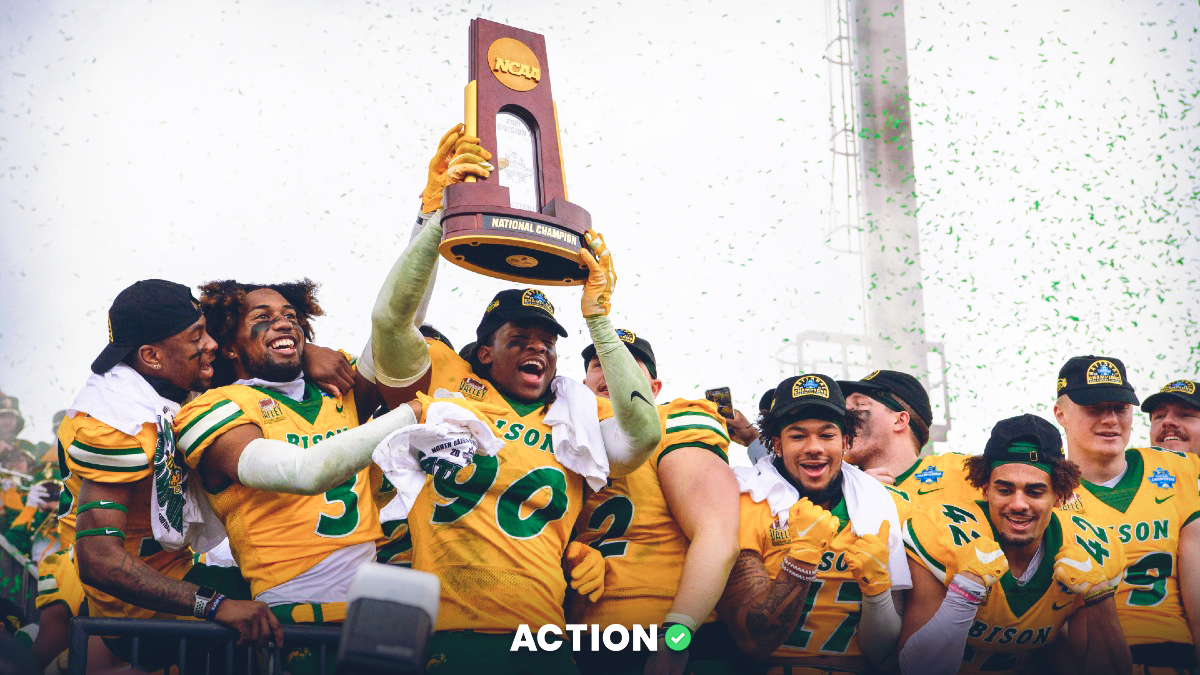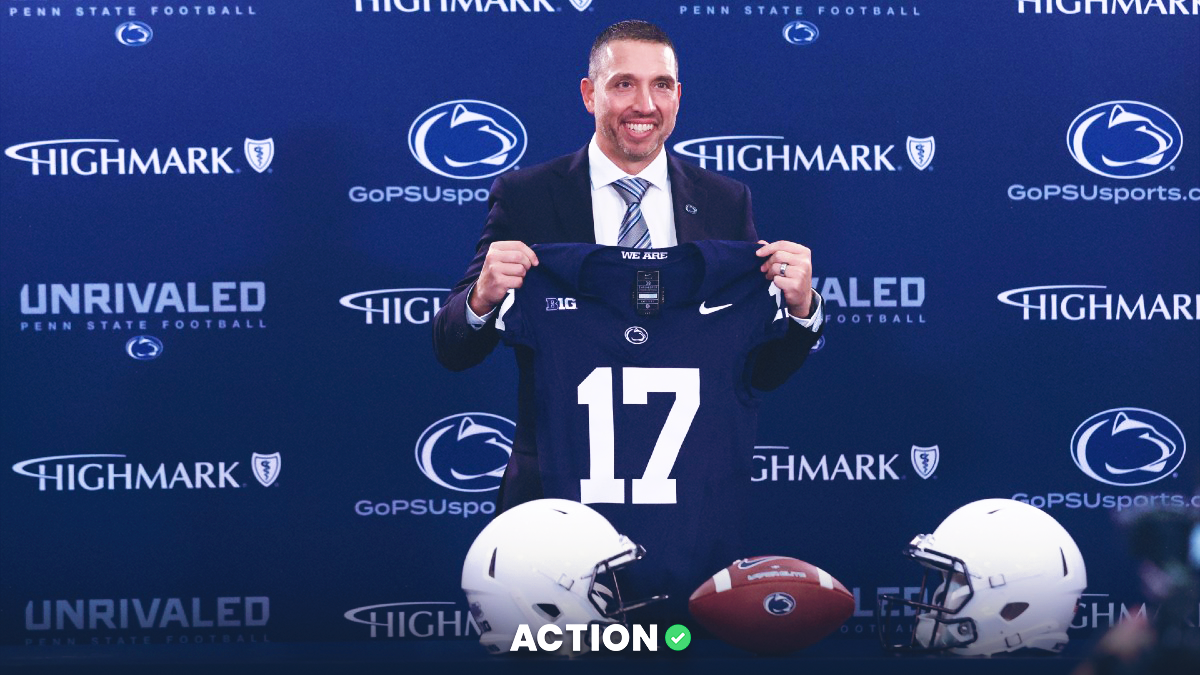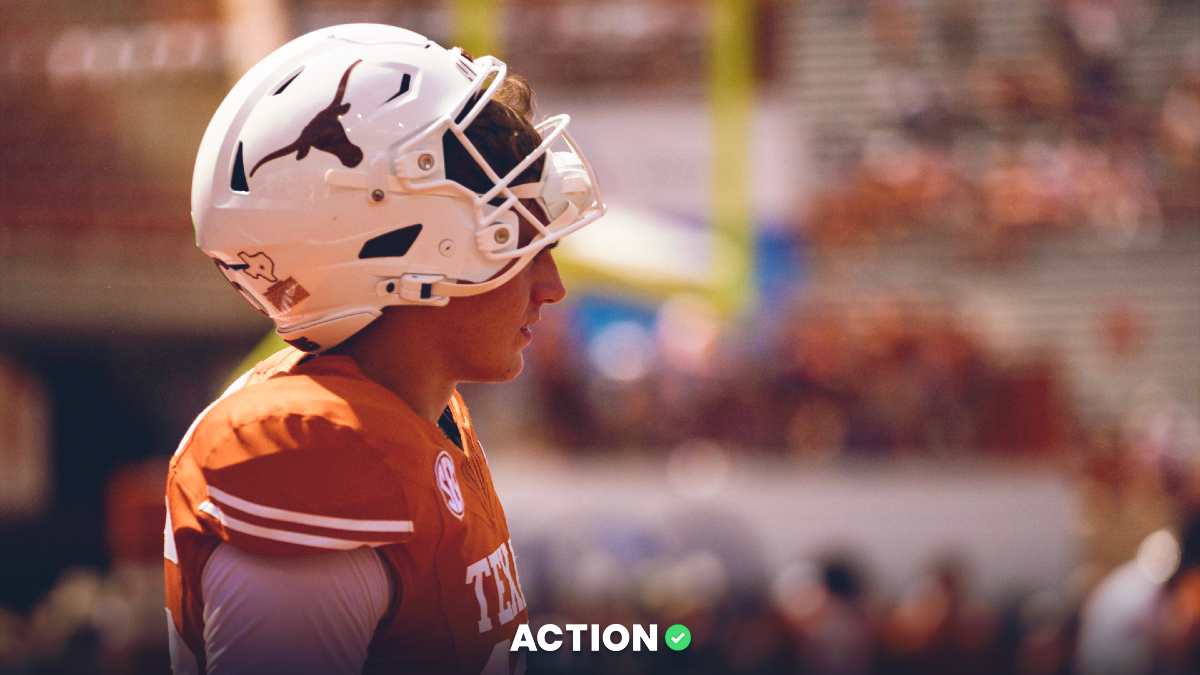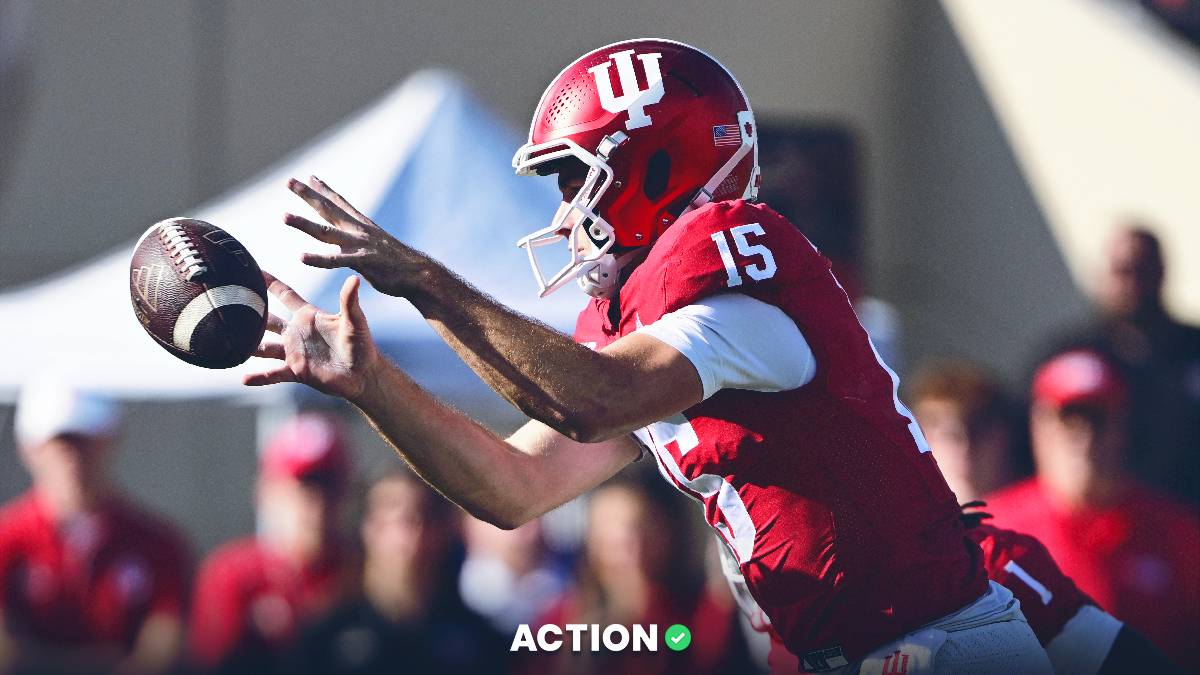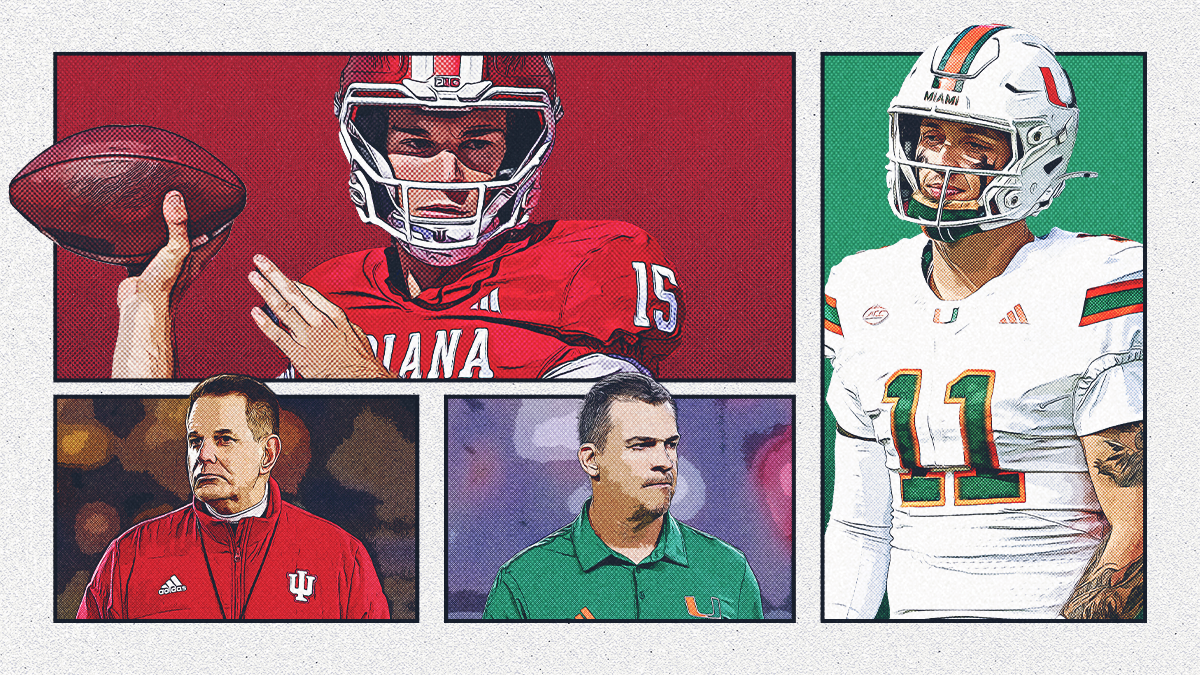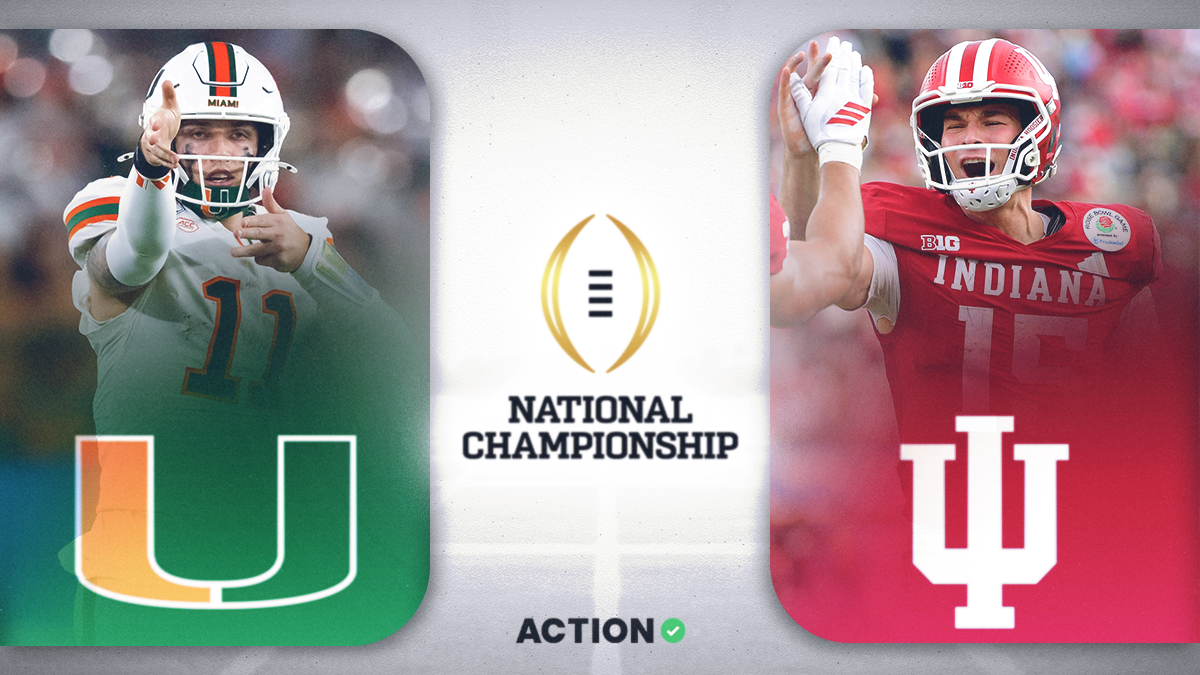The new name, image and likeness rules in college sports started on July 1, just eight days after the Supreme Court ruled in NCAA v Alston that NCAA member schools violated antitrust laws by not allowing collegiate athletes to profit off their image.
It was the perfect timing to dull the enforcement effects of the organization.
In one day, boosters started sliding into players' DMs, when they'd previously been told to stay far away. The money coming in was celebrated and a booster's association with companies that did deals with athletes went unquestioned.
But it's one thing for boosters to set up business deals for incoming athletes. It's another for boosters to set up a slush fund to lure certain players to the school under the guise of name, image and likeness.
And that's exactly what Horns with Heart is.
A group of Longhorns boosters announced Monday a fund that will blindly give University of Texas offensive lineman under scholarship $50,000 a year to perform charity work for yet-to-be-disclosed charities.
While it's admirable to ensure that charity work is done, to pay for it is quite bold. Charity is also the perfect vehicle to avoid reproach. After all, who could get mad at charity?
"We're the first charitable NIL entity….and what that means is we're doing good," said Rob Blair, who co-founded Horns with Heart, in his interview with "Texas Homer," published on YouTube.
Attempts to reach Blair directly were unsuccessful.
The issue is that Horns with Heart is a booster organization designed to fund an important position group and win recruits while masquerading as a name, image and likeness deal.
It will be the first of many or at least until schools decide it is their responsibility to shut them down.
Here's what we know:
1. This is not a name, image and likeness deal
Name, image and likeness deals were meant for popular athletes to be able to cash in on their fame. Blair even admits that offensive lineman aren't that marketable.
"The only time you see the offensive line is when they do something bad on TV," Blair said. "If they get a holding call, they miss a block. There is no SportsCenter top 10 blocks…It's such a vital position that gets zero coverage. We can bring that to light."
Blair added that nobody is talking about Texas offensive lineman Jake Majors and the group seeks to change that.
2. The organization admits the compensation they are offering is more than 50 times the largest deal for the position
In his interview, Blair says that "the largest NIL deal for the offensive line last year was less than four figures."
So how does the group arrive that market value for each offensive lineman here is 50 times that — and to work for non-profits? Undisclosed non-profits with no financial plan?
3. They're not picking specific offensive linemen, which is counter to what NIL means
While Blair makes the claim that it's the boosters altruistic desire to give offensive linemen their due, it's much more accurate to say that offensive linemen have tremendous market value on the field, not in name, image and likeness deals.
So giving that position group money and winning the battle in recruiting with the get-a-scholarship-and-you-get-$50,000 makes a ton of sense. It's just not name, image and likeness.
The best offensive linemen on the market might be worth more than any position other than quarterback and Texas has been losing that battle in recruiting.
The University of Texas only signed one of the top 70 offensive linemen in the Class of 2021, according to 247 Sports, while rival Texas A&M nabbed four.
Eleven of the top 70 linemen in the nation played high school ball in Texas.
4. The construct seemingly violates Texas state law
The state's NIL law says "no individual, corporate entity, or organization may enter into any agreement with a prospective student athlete relating to the prospective student athlete's name, image or likeness prior to their enrollment in an institution of higher education or use inducements of future name, image and likeness compensation arrangement to recruit a prospective student athlete to any institution of higher education."
The very announcement of the fund that offers any Texas offensive lineman an automatic $50,000 is indisputably an inducement because, whether it is overtly mentioned or not, recruits who come to the University of Texas know that their scholarship is tied to a $50,000 a year cash windfall.
For the last decade, non-marketable players in the NFL have been paid marketing fees in advance by agents in order to score their contract. That's now making it to the college game.
And if schools think it doesn't involve them because it's boosters or that the NCAA is completely out to lunch, there's a rude awakening coming. Because long term, the NCAA knows that without enforcement, they are a paper umbrella that is on the cusp of folding.
It's why on Wednesday, at an industry conference in Las Vegas, NCAA president Mark Emmert volunteered that the NCAA is currently investigating several schools for NIL violations.



